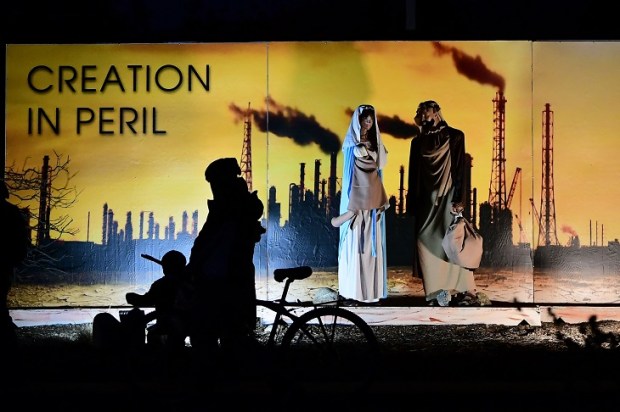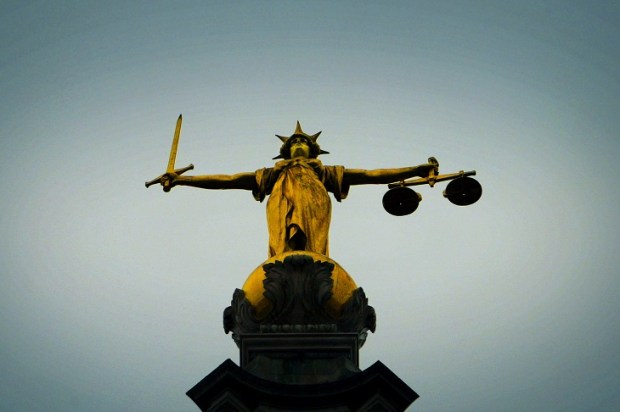Oh, the irony! Five months after infamously standing down its Head of Responsible Investment, Stuart Kirk, to appease a few outraged lobbyists and ‘capital market influencers’, HSBC has been allegedly engaging in a bit of greenwashing. As humorous as it is, HSBC’s blatant hypocrisy serves as a stark reminder of the risks that arise when companies give in to ‘stakeholder capitalism’ and try to appease everyone but their shareholders.
Around the time of the COP26 summit in October 2021, HSBC ran two advertisements in the UK. Largely in black, grey, and white (no doubt to create a sense of doom and gloom), each sought to tout the Bank’s apparent contribution to addressing Climate Change.
The first ad, with a wave crashing on a beach in the background, promoted the $1 trillion of investment and financing HSBC says it will use to assist clients ‘transition to Net Zero’. The second, featuring a picture of tree growth rings, promoted the Bank’s planting of 2 million trees. As anyone who has ever landed at Heathrow would know, the advertisements could easily be construed as a suggestion that HSBC is attempting to single-handedly save the world.
Whilst the UK’s Advertising Standards Authority didn’t put it quite that highly, it did recently hold that the advertisements represented to consumers that the Bank was making a ‘positive overall environmental contribution as a company’. What the advertisements didn’t mention was the Bank’s financing of significant greenhouse gas emitting companies and sectors. In the ASA’s view, this made them misleading.
HSBC is reported by the ASA as having stated in its defence that high greenhouse gas-emitting companies will require financing during a transition to Net Zero, that fossil fuels will be critical to energy security up to 2050, and that the Bank preferred a phase-down and industry engagement approach over divestment. HSBC also suggested that because of the publicity surrounding the COP26 summit, the average consumer would have been aware of the debate regarding the role of banks in relation to Climate Change.
These arguments clearly didn’t help. The ASA found that the advertisements were misleading, banned them, and warned HSBC that future advertisements featuring environmental claims must be appropriately qualified and not omit material information about its contribution to GHG emissions.
Based on what HSBC submitted to the ASA, none of this should have been a problem. After all, unlike many of its peers, HSBC claimed to understand that fossil fuels are essential to energy security. Yet since December 2021, the Bank has made a series of decisions that are in direct conflict with what it submitted to the ASA.
First, in December 2021, HSBC announced that would phase out the financing of coal used for electricity generation. Displaying not a skerrick of concern for energy security, the Bank said it would stop financing coal-fired power and thermal coal mining in the EU and OECD countries by 2030, and in all other countries by 2040. A full 10-20 years earlier than the Bank expressly told the ASA fossil fuel companies would require financing!
In March 2022, the Bank addressed its approach to other energy companies. Whilst it said it would engage with those companies, HSBC also said that if they do not produce climate transition plans that are compatible with its own Net Zero targets, it will consider whether to continue to provide financing. In other words, it’s the Bank’s way or the highway. So much for debate. HSBC’s Asset Management division made a similar announcement in September 2022, stating that it would immediately stop investing in IPOs or primary fixed debt issuance of any company involved in thermal coal expansion and that it would divest from companies that do not have transition plans that align with its timelines.
By May this year, HSBC was not just refusing to acknowledge the existence of a debate as to the role of banks in relation to climate, it was showing utter contempt for the idea. Following a now well-documented speech, Kirk was stood down. Yes, the speech was a bit sensationalist and probably deliberative provocative, but its substantive content merely raised questions about the time, money, and resources spent by investors addressing climate risks and made the argument for investing in adaptation measures. Never mind the Bank’s position that average consumers would understand that is a debate worth having, the outrage those questions apparently caused some on Twitter was enough for the Bank to effectively show Kirk the door.
So, contrary to what it told the ASA is necessary for energy security, HSBC has committed to stop financing and owning fossil fuel companies well before 2050, foreshadowed divestment, and indicated that it considers there to be no debate about the role of banks in relation to climate change.
Such contradictions are not surprising. Like many companies around the world, HSBC seems confused about the interests it is supposed to promote and protect. This demonstrates one of the big problems with stakeholder capitalism; by requiring companies to act in the interests of multiple groups with disparate and often conflicting interests, stakeholder capitalism can result in a complete lack of corporate focus, inherent contradictions, misplaced societal demands, and ultimately, a situation in which there are no winners.
In trying to boost its green credentials and appeal to certain stakeholders, HSBC was accused of misleading the public. HSBC has tried to step into the shoes of elected public policymakers without the constraint of being answerable to society-at-large and has committed to taking actions that have been shown to be more likely to exacerbate negative environmental impacts than reduce them. One group to whom the Bank is truly answerable, shareholders, have seemingly been forgotten. Perhaps the biggest irony in this story is that if it prioritised shareholder interests, HSBC would probably deliver more environmental benefits.
Not only is shareholder primacy what the law requires, but it is also necessary to ensure that accountability for public policy remains squarely with elected officials, and probably what will bring about the most enduring benefits for the environment and other stakeholders. The concept serves more than just shareholders and should be fought for with vigor. We will know we are back on track when you’re greeted at Heathrow by an HSBC ad featuring a coal mine.

























